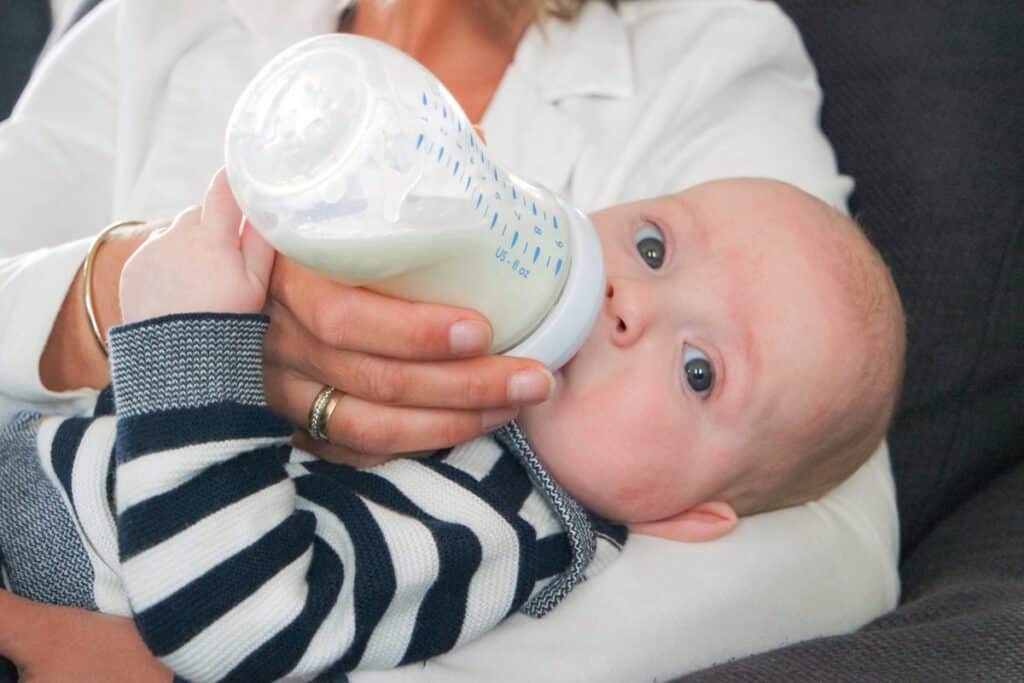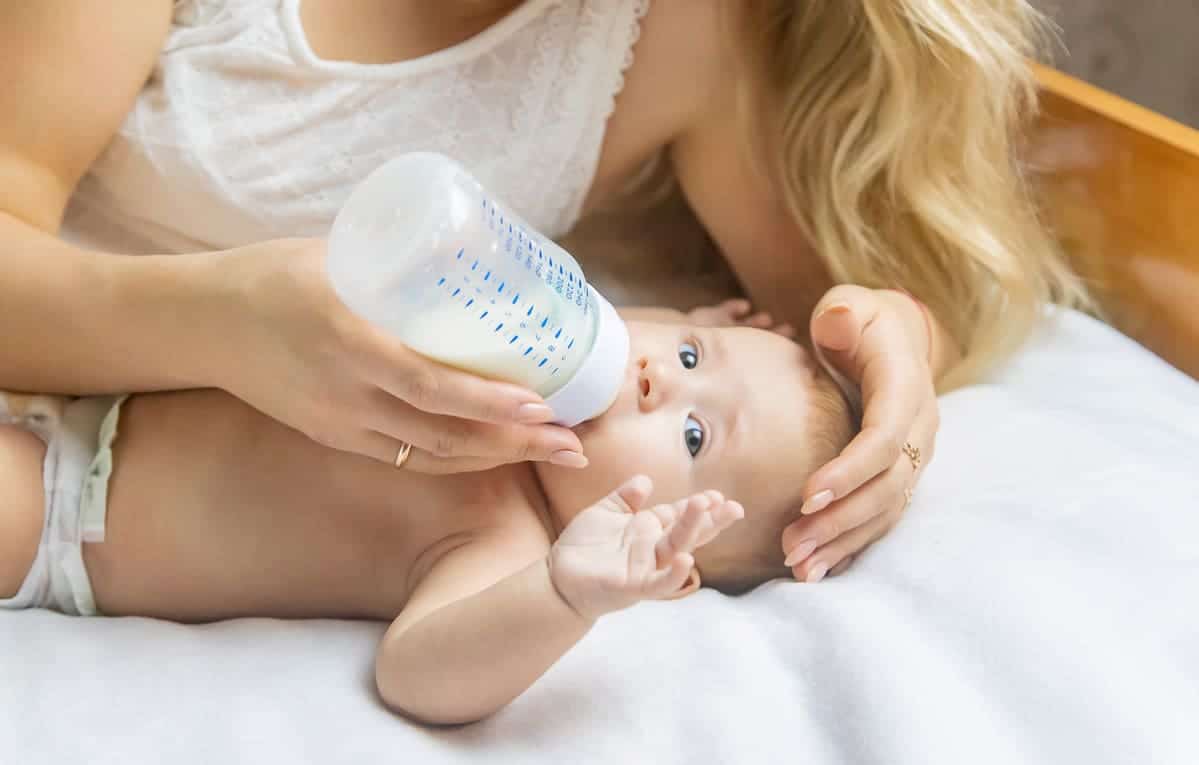Introducing your newborn to bottle feeding is a significant milestone in your parenting journey. Whether you’ve decided to use a bottle exclusively or are incorporating it alongside breastfeeding, this brings a unique set of joys and opportunities for bonding. In this comprehensive guide, we’ll explore the ins and outs of bottle-feeding a newborn, with a focus on choosing the right baby-feeding bottle for your little one’s needs.
Formula Feeding:
For many parents, formula feeding is a viable and practical option that offers flexibility and convenience. Whether due to personal choice or circumstances, formula feeding allows caregivers to share feeding responsibilities and provides a standardized, easily digestible source of nutrition for newborns. Modern formulas have been carefully created to mimic the vital components contained in breast milk, ensuring that your baby obtains the nutrition they require for healthy growth.
When opting for formula feeding, it’s essential to choose a high-quality formula suitable for your baby’s age and needs. Remember, the principles of responsive feeding apply here as well, allowing you to establish a nurturing connection with your baby during feeding sessions.

Why Use a Bottle for Feeding Newborns:
Bottle-feeding newborns provides flexibility and convenience for both parents and babies. While breastfeeding is a wonderful option, bottles provide an opportunity for shared caregiving responsibilities, allowing partners, family members, or caregivers to actively participate in feeding sessions.
Bottles also offer a consistent and measurable way to monitor your baby’s intake, making it easier to track feeding patterns and ensure they are receiving the right amount of nutrition. Additionally, for mothers who may face challenges with breastfeeding, such as latch issues or a busy lifestyle, baby feeding bottles become an essential tool in ensuring that the baby’s nutritional needs are met with ease.
Choosing the Perfect Baby Feeding Bottle:
The market is flooded with various baby feeding bottle options, making it essential for new parents to make an informed choice. When selecting a bottle for your newborn, consider factors such as material, shape, and nipple type. Opting for an organic baby feeding bottle ensures that your little one is exposed to fewer harmful chemicals.
The Right Materials:
Organic baby feeding bottles are typically made from materials like glass or BPA-free plastics. BPA-free bottles provide a lightweight alternative without compromising on safety. Always ensure that the chosen material is durable and easy to sterilize to maintain hygiene.
Nipple Selection:
Nipples come in a variety of shapes and flow rates, each catering to a different stage of your baby’s growth. Newborns often benefit from slow-flow nipples to mimic the natural pace of breastfeeding. Organic baby feeding bottles often come with silicone nipples, known for their durability and flexibility. Choose a nipple that suits your baby’s comfort and feeding style.
Sterilization and Cleaning:
Maintaining cleanliness is crucial when bottle-feeding a newborn. Organic baby feeding bottles are designed with easy cleaning in mind. Most can be sterilized using boiling water, a steam sterilizer, or a dishwasher. Regular cleaning and sterilization prevent the buildup of harmful bacteria and ensures a safe feeding environment for your baby.
Feeding Time Tips:
As new parents you always wish to do the best for the baby. Choosing organic baby care products will be one of them. And now that you’ve selected the perfect baby feeding bottle let’s delve into some practical tips for feeding your newborn. Hold your baby close, ensuring a comfortable position for both of you. Pay attention to your baby’s cues, such as rooting or sucking on hands, indicating hunger. Hold the bottle at a slight angle to minimize air intake, reducing the risk of gas or colic.

How do you know if your baby is hungry?
Understanding your baby’s hunger cues is crucial for responsive and timely feeding. Newborns communicate their hunger through subtle signs, such as increased alertness, turning their head towards your chest or hands, and putting their fists to their mouths.
Rooting, where the baby turns their head when their cheek is touched, is a clear indication of hunger. Crying is a late hunger cue, so it’s beneficial to respond to these early signals to avoid unnecessary distress. By staying attuned to your baby’s non-verbal cues, you can foster a responsive feeding relationship, meeting their needs promptly and promoting a sense of security.
When to Know the Baby is Full?
Recognizing when your baby is full is equally important to avoid overfeeding. Watch for signs that your baby is content, such as slowing down their sucking, turning their head away from the bottle, or simply releasing the nipple. Babies also display subtle cues of satiety, like relaxing their hands and body. It’s crucial to let your baby set the pace during feedings, allowing them to take breaks and indicating when they’ve had enough.
Responsive feeding, which involves paying attention to your baby’s cues rather than a predetermined schedule, promotes a healthy relationship with food and aids in the prevention of complications such as overeating or discomfort.
Establishing a Routine:
It’s important to maintain consistency in feeding your newborn. Make a feeding plan that is convenient for both you and your baby. Keep track of feeding times and amounts to ensure your baby is getting the nutrition they need. Organic baby feeding bottles can be labeled with measurements, aiding in accurate portioning.
As a new parent, choosing an organic baby feeding bottle ensures that your baby receives nourishment in a safe and chemical-free manner. Remember to select the right materials and nipple type and establish a feeding routine that suits both you and your little one. Bottle feeding is not just a practical solution; it’s a chance to create lasting bonds and moments of joy with your newborn.











